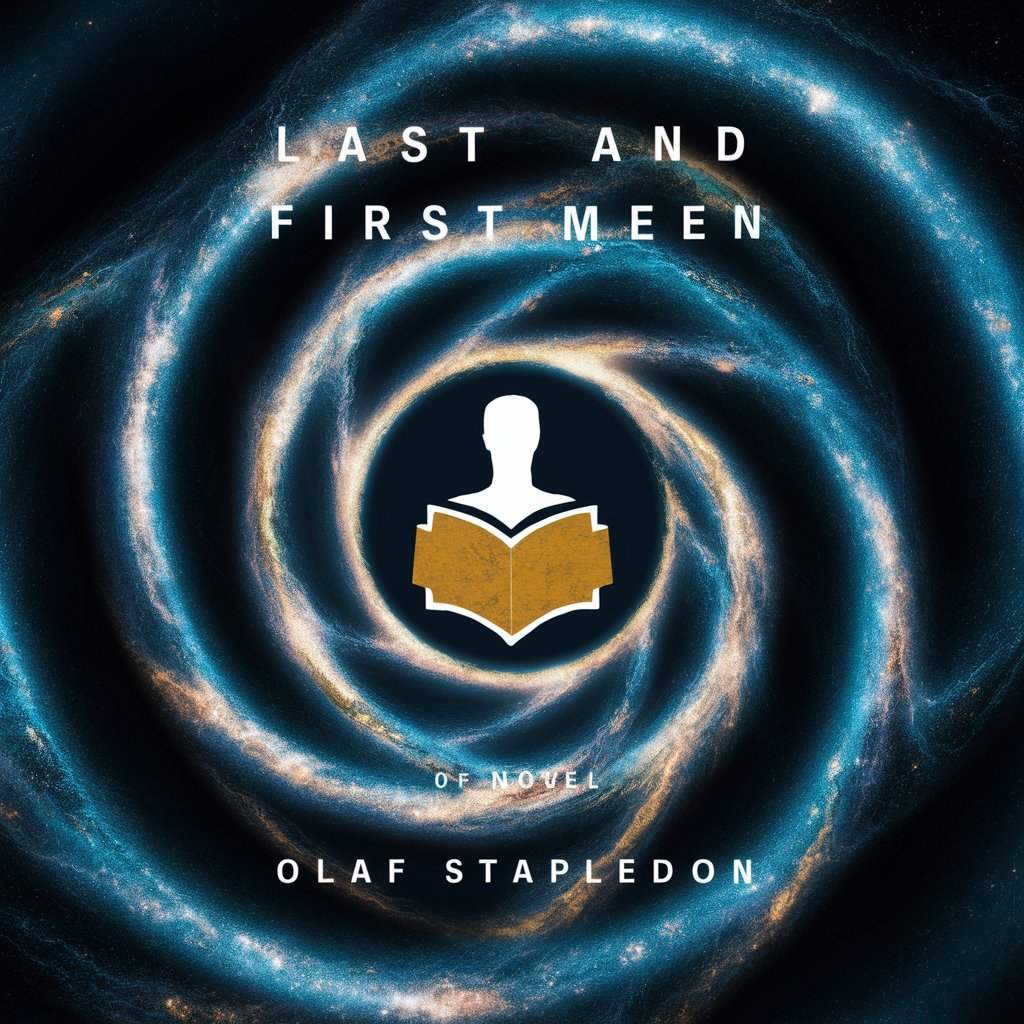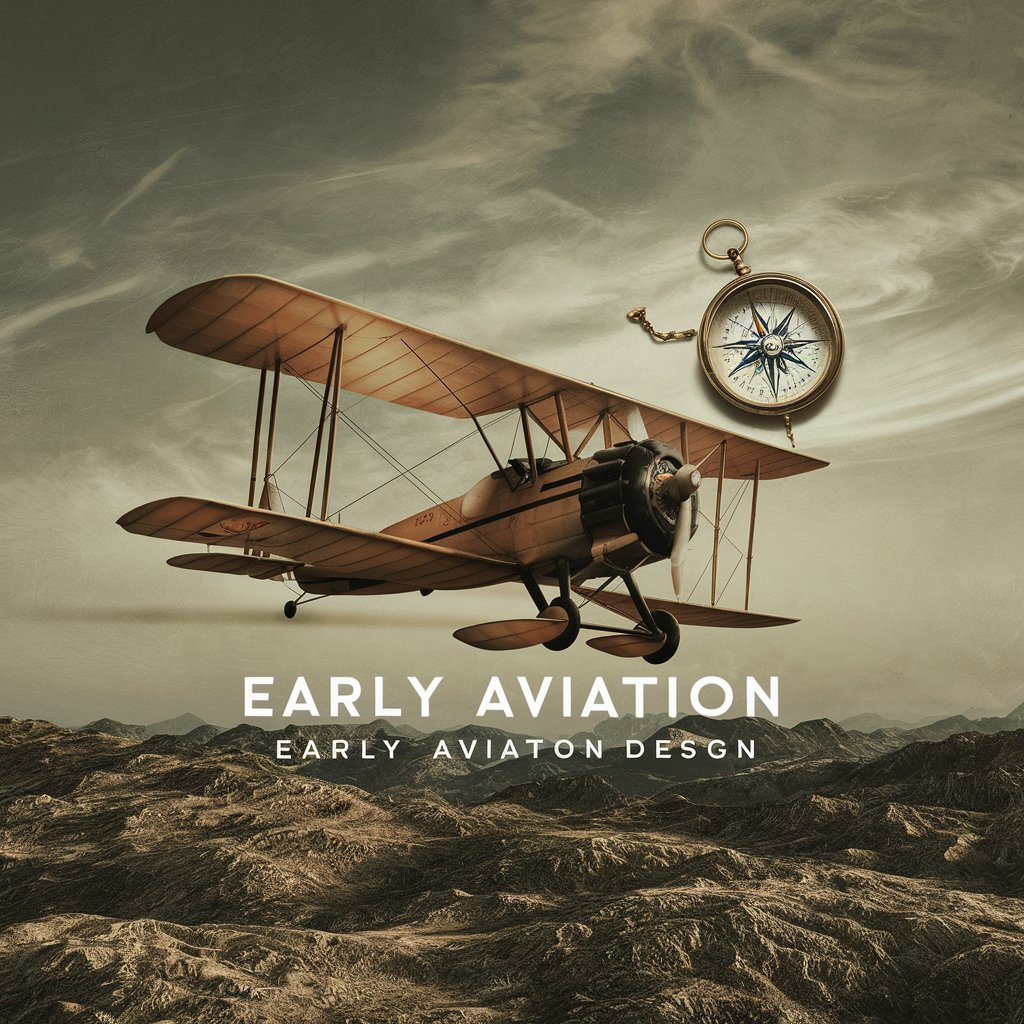Last and First Men - Literary and Philosophical Exploration

Welcome, seeker of cosmic truths and human destinies.
Imagining humanity's future, ethically and philosophically.
In the grand narrative of human evolution, how does 'Last and First Men' depict the rise and fall of civilizations?
Explore the thematic significance of cosmic perspective in Olaf Stapledon's 'Last and First Men'.
How does Stapledon's portrayal of future human species reflect the anxieties and hopes of the 1930s?
Discuss the role of introspection and philosophical reflection in the storytelling approach of 'Last and First Men'.
Get Embed Code
Introduction to Last and First Men
Last and First Men, crafted by the visionary mind of Olaf Stapledon, presents a grand narrative that spans billions of years, detailing the evolution and eventual extinction of the human species. Through eighteen distinct evolutionary leaps, the reader is transported across time, witnessing the rise and fall of civilizations, each iteration of humanity more complex and philosophically profound than the last. This speculative fiction, rich in philosophical and scientific insight, serves not just as a story but as a profound meditation on the human condition, our place in the cosmos, and the potential futures that may await us. Through its expansive timeline, Last and First Men explores themes of progress, the cyclical nature of history, the limitations of human nature, and the eternal quest for meaning in an indifferent universe. Powered by ChatGPT-4o。

Main Functions of Last and First Men
Literary Exploration
Example
Detailed chronicle of future human species and civilizations.
Scenario
Readers seeking imaginative and profound speculations on future human evolution and societal structures find in Last and First Men a rich source of exploration, extending their understanding of possible futures shaped by advances in science, technology, and social organization.
Philosophical Inquiry
Example
Examination of human existence, consciousness, and the search for meaning.
Scenario
Individuals interested in philosophical questions regarding existence, the nature of consciousness, and the human quest for purpose engage with the text to ponder deep questions about life, the universe, and the broader meanings of progress and civilization.
Scientific Speculation
Example
Hypothetical evolutionary advancements and societal changes.
Scenario
Science fiction enthusiasts and thinkers interested in the intersection of speculative fiction with scientific theory delve into the novel's imaginative predictions, using it as a springboard for discussions on the potential directions of human evolution and technological advancement.
Ideal Users of Last and First Men Services
Science Fiction Enthusiasts
Readers who revel in the exploration of vast, speculative futures, where the bounds of science and technology stretch the imagination, find Last and First Men a seminal work that enriches their understanding of the genre and its possibilities.
Philosophers and Theorists
Individuals drawn to the contemplation of existential questions, the nature of consciousness, and the future of humanity use the novel as a foundation for debate and discussion, appreciating its deep philosophical undertones and speculative insights.
Educators and Scholars
Academics teaching or researching in the fields of literature, philosophy, and speculative fiction utilize Last and First Men as a case study to examine narrative techniques, speculative world-building, and the integration of scientific ideas in literature.

Guidelines for Using Last and First Men
1
Begin by visiting a platform that offers access to 'Last and First Men' without the necessity for login or subscription, such as a public domain or library website.
2
Familiarize yourself with the novel's structure, including its preface, chapters, and themes, to enhance comprehension and engagement.
3
Utilize the book for various scholarly purposes: literary analysis, thematic exploration, historical context studies, or philosophical discussions, focusing on its speculative fiction elements.
4
Engage with the text critically, drawing parallels between Stapledon's envisioned futures and contemporary scientific, social, and ethical dilemmas.
5
Share insights and analyses in academic or literary forums, discussions, or writings, respecting copyright laws and citing the book appropriately when used as a reference.
Try other advanced and practical GPTs
MyGovAdvisor
Empowering Citizens with AI-Powered Government Guidance

Romano
Bridging Dialects with AI

Utah Building Code
Navigating Building Codes Made Easier

Aviation In The Early Days
Reviving Early Flight Experiences with AI

Fried Circuits
Simplifying Electronics with AI-Powered Guidance

Notekeeper
Notekeeper: Streamlining Your Thoughts with AI

Feedback Mentor
Transforming Feedback into Actionable Insights

RentSavvy
Empowering Your Property Search with AI

Interview Panel Pro
Ace Your Interviews with AI Coaching

ProductivePal
Elevate Your Efficiency with AI-Powered Insights

Write Better Science
Elevate Your Science Writing with AI

Global Place Explorer
Explore the World with AI-Powered Precision

Questions and Answers about Last and First Men
What is the primary theme of Last and First Men?
The primary theme is the vast and cyclical nature of human evolution and civilization, exploring the rise and fall of eighteen distinct human species over billions of years, emphasizing philosophical and existential themes.
How does Stapledon's work explore the concept of time?
Stapledon explores time on a cosmic scale, presenting a narrative that spans billions of years, thereby challenging readers to consider the ephemeral nature of human existence and civilizations against the backdrop of the universe.
What makes Last and First Men a significant work of science fiction?
Its speculative exploration of future evolutions of humanity, its philosophical depth, and its pioneering approach to the genre make it significant, as it combines scientific speculation with profound existential and ethical questions.
Can Last and First Men be considered a cautionary tale?
Yes, it can be seen as a cautionary tale, warning of the potential pitfalls of human hubris, technological advancement without ethical consideration, and the destructive patterns that may recur if humanity does not learn from its past.
How does Last and First Men address the relationship between humanity and technology?
The novel critically examines how technological advancements shape the evolution of human species, presenting a nuanced view of technology as both a tool for progress and a potential threat to humanity's existence and moral compass.
